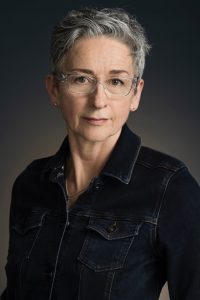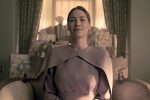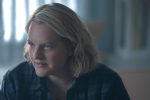Inside the Mind of Sarah Williams: Unveiling the Bold Vision Behind “Outrageous”

They’re one of the most fascinating families you might never have heard of. In 1930s England, six headstrong girls and their one brothers forge their individual – and often questionable – paths under the helpless watch of their parents, David Freeman-Mitford and Sydney Bowles. Cousins to the Churchills (as in, Winston), their rebellious behavior is hardly characteristic of either the times they live in or the social class they were born into – but they are determined to make their mark.
From creator Sarah Williams (Becoming Jane, Flesh and Blood) comes Outrageous, the true story of six sisters who were wildly ahead of their time. Eldest Nancy (played by Bessie Carter) is the most pragmatic of the lot, and a published author. However, unmarried in her late 20s, she’s unconventional in her own way, even if that lack of conformity isn’t exactly by choice.
Meanwhile, her sisters Diana, Jessica, Unity, Pamela and Deborah run the gamut of political extremism, from fascism to communism, insistent on joining their chosen party’s side no matter the consequences. Their scandalous stories, while well documented in historical texts, have not been told to any extent on either the big or small screen – until now.
Williams spoke about this passion project that was some 20 years in the making.
Tell me about the biography that inspired this series, Mary Lovell’s “The Mitford Girls”. What first attracted you to the story of these six sisters?
The book was gifted to me by a friend who knew that I love true stories, historical stories, about strong women. Unusual, rebellious, transgressive women. So it was a clear hit as a Christmas present! I knew a little bit about the girls. I knew Nancy really was an author and, long ago, I had read one or two of her books, but I didn’t know an awful lot about them.
As I read Mary Lovell’s book, the characters really leapt off the page; as you turn the pages of that book, you think, “They can’t all be in one family.” This was a ridiculous amount of drama to pack into one family, and it became very clear to me that I had drama gold on my hands. This was a really great family saga which needed to be told. And why on Earth hadn’t it been done before? And so I got very excited and outlined a serious plan for it. I thought, “This is terrific. It’s going to get picked up immediately.”
That was 20 years ago. My story fell on deaf ears among British TV channels. It’s hard to understand why that was… maybe six female lead characters was felt to be too much at the time. The politics were maybe too hot to handle.

Sarah Williams. Photo by Igor Emmerich
Then COVID came round and the nice people at Firebird Pictures, who I have worked with before on other projects, gave me a call. They were keen to continue our relationship and asked if there was any passion project I had that I would like to pitch to them. I said, “Funnily enough, I do have this one thing” – and it really spoke to them. Suddenly, here I am in New York, at the Tribeca Film Festival, and we’ve got billboards all across town.
So maybe it was just a matter of waiting for the right moment. Now it seems like its moment has come, and everybody wants six female leads. These are all transgressive women going in different directions. Political extremism is back in the news, and maybe our show is a bit of a cautionary tale. It’s suddenly turned into a popular thing, whereas for a long time I couldn’t get anywhere with the idea.
What additional research did you have to do into the family members’ stories?
Most of them wrote their own autobiographies, and there’s Nancy’s whole range of fiction. They were incredible letter writers, so there are masses of letters between the sisters. There are all kinds of contemporaneous press articles. They were in the newspapers an awful lot. So, in a way, there is so much about them, and one of the biggest challenges of writing was how to condense all of that factual information into something that was true but was also a gripping episode-by-episode story.
Given the amount of story you had to work with, how did you decide what to include in these six episodes?
That was the hard work of the project, really. I needed to find an end point to this… and where was I going to start? How far back into their childhood would I go? And what would be the moment when the story all started? As Nancy, our narrator, says at the very beginning, it was Diana who set the ball rolling. It was her decision to leave her happy marriage and strike out into a dangerous world…maybe that inspired the others to go the distance and do what they did.
There were a lot of diagrams drawn on bits of paper, thinking about where to start and looking for a climax and a moment when someone’s life goes in another direction. That’s the job of it, isn’t it? It’s really all to do with the planning. I think a lot of screenwriting is about “Where am I going and what are my stops along the way?”
Tell me about the Mitford family and how the parents and siblings all interact with each other.
I think there was a very strong family culture. You have to remember, the girls were not sent to school, so they had a governess at home. It was quite a cloistered growing up experience. They only had each other and didn’t have much of a wider peer group. They were quite cut off from the rest of the world, so a family folklore, a family culture, developed. I think they were very lucky in one sense, in that, for their class and for their time, they had a mother and father who loved each other and who loved them. That was never in doubt, and so from that point of view, their family was pretty solid.
On the other hand, their mum and dad were both pretty eccentric characters and the girls were incredibly bright, passionate, and clever. They were girls who had no outlet for their talent and were just stuck in their house. They did have access to a fabulous library of classics, so their minds were able to expand, within parameters.
But they were a tight knit bunch. It made me think of Pride and Prejudice or Little Women, those coming-of-age stories of lots of girls crushed in together, and that they’re pretty timeless stories.
Your narrator, Nancy, seems to be the head of the household, even managing her parents’ emotions. How did you want to portray her and what does Bessie bring to the character?
Nancy is the eldest, so she has a good perspective on the other members of her family. She is also the one who became a bestselling author, and she wrote about her family. There’s that nice Nora Ephron quote, “Everything is copy” – Nancy was already doing that. So I think she was a natural storyteller. She was a writer. I suppose that, from my point of view, I could identify with her more than the other characters. Maybe she was even the family observer. And she was also the most politically centrist, which I felt was useful. They used to call her a champagne socialist – in her family of political extremists, she is the most relatable. I felt we needed someone relatable to guide us through this extraordinary story.
I was sent Bessie’s audition tape, and it was an instant “she’s the one” – she has a great self-awareness. With her portrayal, you feel complete empathy for her, even though you know she’s a flawed character. Nancy’s got a great mix of intelligence and self-deprecating humor, and she’s a bit of a hot mess. So I think she’s quite relatable to the modern woman.
What do you like about writing in this particular era, the 1930s?
I think the 1930s were a really interesting time for women; they had just got the vote in Britain. They were just beginning to enter the professions and have some agency over their lives. There was, for the first time, some contraception available, so they could maybe choose whether or not to have a family… or how big of a family to have.
There were lots of Katharine Hepburn-type movies, mostly coming from America, where you were able to see the possibilities that a modern woman could have. Of course, the war came along and shot a lot of that down, and then it didn’t really emerge again until the 1960s.
But I think there was a feeling of possibility in the 30s, and it was also, politically, a very tumultuous time. Not dissimilar to now, perhaps? You can see the world from their point of view. They were worried about what was going on. Would there be a war? What’s happening in Germany, what’s happening in Russia, what’s happening in the United States? There was a feeling that democracy was fragile, and there was a lot of uncertainty. Everything seemed to be changing. The very class that these girls were born into, the aristocracy, was crumbling. What would happen next?
Join the Discussion!
Related Articles
Browse our Videos for Sale
[woocommerce_products_carousel_all_in_one template="compact.css" all_items="88" show_only="id" products="" ordering="random" categories="115" tags="" show_title="false" show_description="false" allow_shortcodes="false" show_price="false" show_category="false" show_tags="false" show_add_to_cart_button="false" show_more_button="false" show_more_items_button="false" show_featured_image="true" image_source="thumbnail" image_height="100" image_width="100" items_to_show_mobiles="3" items_to_show_tablets="6" items_to_show="6" slide_by="1" margin="0" loop="true" stop_on_hover="true" auto_play="true" auto_play_timeout="1200" auto_play_speed="1600" nav="false" nav_speed="800" dots="false" dots_speed="800" lazy_load="false" mouse_drag="true" mouse_wheel="true" touch_drag="true" easing="linear" auto_height="true"]










You must be logged in to post a comment Login